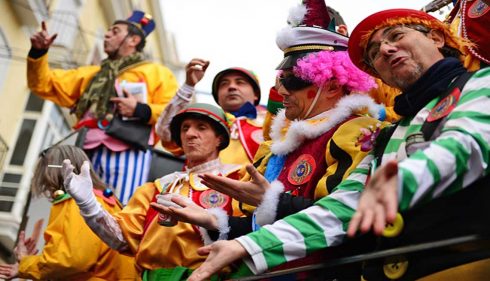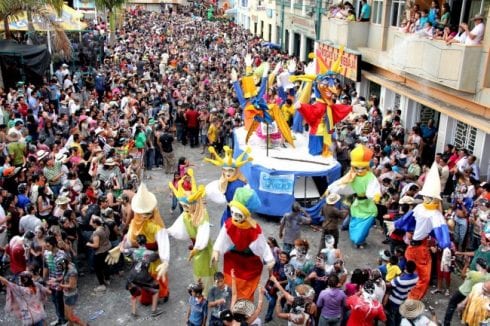The British people are very particular about certain days in the year, like Bonfire Night, Pancake Day, or the FA Cup Final.
So it is in Spain. One of them is “Carnaval”, a festival that is based on Easter. This year Easter was exceptionally late, so “Carnaval 2020” will take place over the weekend of 14-16 Feb.
It’s fun. In Andalucía, two traditions have merged over the centuries.
Let’s start with Shrove Tuesday. (This year it falls on 4 March, but ‘Carnaval’ can’t wait!).
READ MORE
Lent was once a major event. Lent (‘cuaresmaThe six-week period before Easter is called “” in Spanish.
The idea was that Christians (there used to be a time in Europe when everyone was Christian) were supposed to imitate Jesus Christ.
For forty days before He died, Jesus went into the desert to meditate. He didn’t eat much. This is why we used to ‘give up’ things we like (chocolate, cakes &c.) for Lent.
This was a big problem in the days before everyone had a refrigerator and freezer. If milk, eggs, butter and other perishables were not going to be used during Lent, best to eat them the day before – ie, Shrove Tuesday, before they ‘went off’.
In the Christian world the day before Lent has become a celebration. Another tradition is to mock the wealthy, powerful and well-known.
The city of Cádiz is well-known as a hub of democracy (it’s where the Spanish people first told the king he had to obey a constitution).

The citizens (known as ‘gaditanosThey are known for their ability to laugh at themselves and others. They developed a tradition of ‘Chirigotas‘, which can’t be translated into English, but means something like ‘joker’.
Groups of young men get together in secret and make up scurrilous, insulting but very funny songs about anyone in the news – the king, Rafa Nadal, Paris Hilton.
Donald Trump will be the subject of many jokes in 2018. These ‘chirigotasGo around the city during Carnaval, singing libellous songs in bars and restaurants.
Since a long time, it has become a tradition for people to dress in the same costumes. If you are out with friends on Saturday, February 15, your evening could be interrupted by five men dressed as pirates.
In some places, it is treated as a serious art form. Cádiz and Málaga have major theatre evenings devoted to chirigotas.

Málaga is gearing up for COAC (the official singing groups competition), and the city centre will be full of chirigotas. Parades, performances, and other wildness will take place.
Anyone who wants to show up at ESAD (Málaga’s School of the Dramatic Arts, in the calle Béla Bartók) between 8 and 14 February, can watch the knockout rounds of the chirigota contest. The semi-finals are scheduled to take place at the Cervantes Theatre between 16 and 19. The Grand Gala Final takes place on the 21st of February.
The knockout phase is free to the public: semi-finals tickets range from €12 to €19 , while the final costs from €35 to €59 per ticket.
We could add another element to our mix of traditions. In Brazil and the Caribbean, Carnaval is celebrated through street parades and dance. It is believed that this originated in Africa, when African slaves brought their voodoo to the New World.
Carnaval has become one of Europe’s most popular street parties thanks to the Canary Islands’ large Brazilian and Caribbean communities.
Other fun activities are promised in Málaga, such as the election of a god and goddess of the festival (after the voodoo king, Rey Momo), and (on 28 February) a Drag Queens Gala.
Fancy Dress Day (!) and the Great Anchovy Night(!) These two events will add to the celebrations, but their dates are not yet official.
 Costa News Spain Breaking News | English News in Spain.
Costa News Spain Breaking News | English News in Spain.







